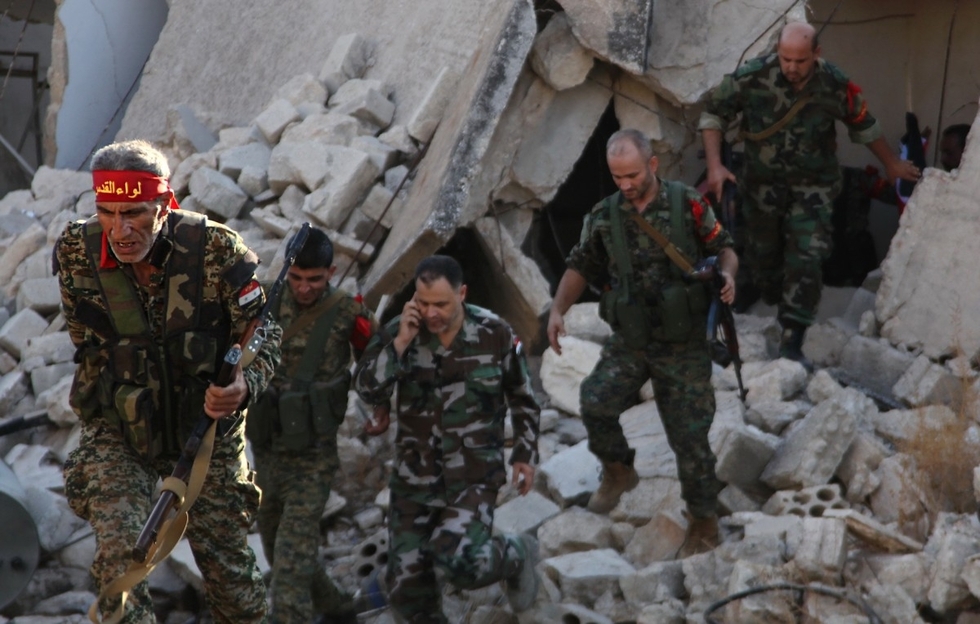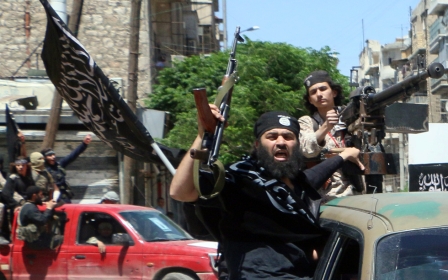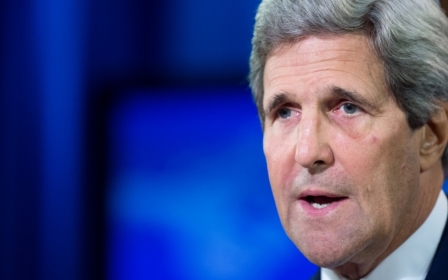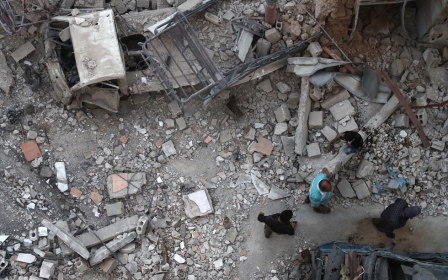Syria government keeps up Aleppo assault after UN fails on truce

Syrian government forces Sunday kept up their assault on rebel-held eastern Aleppo after a divided UN Security Council failed to agree on a truce to "save" the war-battered city.
Syrian government forces and their allies were advancing street by street in the eastern sector which has been out of government hands since 2012.
"Clashes on the ground as well as fierce air strikes went on all night and are continuing Sunday, especially in the Sheikh Said district" of eastern Aleppo, said Rami Abdel Rahman, head of the Syrian Observatory for Human Rights.
The Observatory said Assad's forces had taken control of the Jandul crossroads in the northeast of the city.
The latest advances aim to clear the way for "a crucial and decisive land offensive," said the Damascus daily al-Watan, which is close to the government.
The army launched its assault on the besieged sector of Aleppo more than two weeks ago with the backing of Russian air strikes, aiming to reunite the city which was Syria's economic hub before the country's conflict erupted in 2011.
According to the Observatory, air strikes by the government and its Russian ally have claimed 273 lives, mostly civilians and including 53 children, since the 22 September launch of operations to reunite the government-held west and the east of Aleppo.
Another 17 civilians have died in artillery bombardment of eastern districts, says the Britain-based monitoring group.
The Observatory, which compiles its information from sources on the ground, said 50 civilians, including nine children, have also died in rebel bombardment of government-controlled western districts.
On Saturday at the United Nations, Russia vetoed a French-drafted resolution demanding an end to the bombing of Aleppo, but its own rival measure on a truce was rejected.
'More dangerous' than Cold War
The failure of the two resolutions deepened divisions at the UN Security Council between Moscow and the Western powers backing rebel forces in Syria's five-year war, which has killed 300,000 people.
France's draft called for an end to all military flights over Aleppo and to air strikes on the rebel-held east, which has 250,000 inhabitants.
"What is at stake today is first and foremost the fate of Aleppo and its people," France's Foreign Minister Jean-Marc Ayrault told the council, urging it to take "immediate action in order to save" the city.
It was the fifth time that Russia has used its veto to block UN action on the war in Syria.
Shortly after Russia's veto, the Security Council rejected a rival draft presented by Moscow that called for a ceasefire but did not mention a halt in air strikes.
Britain's ambassador to the United Nations, Matthew Rycroft, described Saturday's failure in New York as "a bad day for Russia, but an even worse day for the people of Aleppo".
Following the meeting, his Russian counterpart, Vitaly Churkin, insisted that diplomatic efforts on Syria were not dead.
"No, no, no," he said.
The assault on Aleppo was launched just days after the collapse of a ceasefire in Syria that was brokered jointly by Russia and the United States.
German Foreign Minister Frank-Walter Steinmeier warned that the mounting tensions between Washington and Moscow over the Syrian conflict had created a situation "more dangerous" than the Cold War.
"It's a fallacy to think that this is like the Cold War," Steinmeier said in an interview published by Bild newspaper. "The current times are different and more dangerous."
New MEE newsletter: Jerusalem Dispatch
Sign up to get the latest insights and analysis on Israel-Palestine, alongside Turkey Unpacked and other MEE newsletters
Middle East Eye delivers independent and unrivalled coverage and analysis of the Middle East, North Africa and beyond. To learn more about republishing this content and the associated fees, please fill out this form. More about MEE can be found here.




